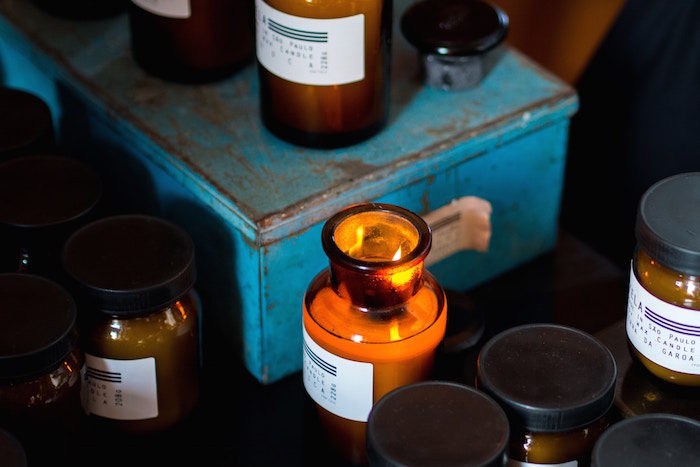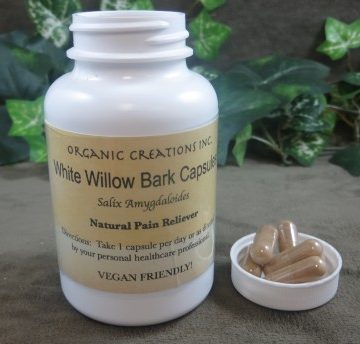 Have you ever wandered if there is any other solution to get rid of that stubborn headache than swallowing a pill?
Have you ever wandered if there is any other solution to get rid of that stubborn headache than swallowing a pill?
I am a pharmacist–I deal with medication on daily basis. I sell them, dispense, and give advice on what to take for a particular ailment.
But…I am also a nutritionist. This is why I would always encourage my patients to change their diet first, start exercising and try some natural alternatives before going on medication.
(Please note: there are some conditions for which taking medications is a necessity. It is worth mentioning though that you can always support your health with proper nutrition and supplements ;D ).
Try my favorite alternatives to painkillers.
Ibuprofen is one of the most commonly used drugs. It is often bought or prescribed for back problems, period pains, arthritis, toothache, headache or sport injuries. Although very popular, it comes with serious side effects such as stomach ulcers, worsening of asthma symptoms, rashes, bleeding, raised blood pressure of even kidney problems. These can be minimized by taking it with or after foods but can not be completely eliminated.
So – what natural alternatives should you try instead?
1. Boswellia.
Boswellia, also known as Indian Frankincense, comes from Boswellia Serata tree which has been used for centuries in Ayurveda (traditional Indian medicine).
Research shows that boswellic acid is the main component responsible for it’s natural anti-inflammatory properties.
Boswellia extract is especially effective in rheumatoid pain, headaches and discomfort associated with inflammatory bowel disease. It relieves pain by opening the blood vessels, reducing the blood pressure and blocking production of leukotriens (chemical components taking part in signaling pain and made in response to inflammation).
General dosage varies form 300 mg to 500 mg (by mouth) two to three times a day.
These are two Boswellia supplements that I commonly use in the practice:
2. Willow bark
The bark of several willow trees has been traditionally used in Europe for different forms of pain, especially back, neck and shoulders and menstrual cramps.
Two main willows used for medicinal purposes are white and black varieties. Branches of the tree must be at least 2-3 years old in order to obtain the bark.
The main ingredient – glycoside salicin gets converted in the body into salicylic acid. The action is similar to the one of aspirin but without nasty side effects. Salicin stops formation of prostaglandins by inhibiting the enzyme cyclooxygenase, responsible for their production.
The analgesic and anti-inflammatory action of the willow bark takes slower to develop but might last longer than conventional NSAIDs.
The common dose for pain relief is 240 milligrams a day (by mouth).
Unfortunately you might need to do some digging in to find a good quality vegan supplement as capsules often contain gelatin.
This is one I came across.
3. Turmeric
Turmeric has anti-inflammatory, analgesic and antibacterial properties.
This marvellous herb has long been used in both Chinese and Indian medicine and kitchen.
The main ingredient curcumin blocks inflammatory cytokines and enzymes (expecially COX-2) therefore reduces pain, inflammation, swelling and redness. One of the recent studies concluded that turmeric has strong analgesic properties, without causing side effects typical for common painkillers. Research from February brings some exciting news – turmeric extract might even be helpful in treating stubborn, neuropathic pain!
Typical dose contains 400 mg – 600 mg of curcumin extract, which can be take up to three times a day. Remember to chose a supplement that also contains black pepper as this enhances the absorption of curcumin.
4. Cherry extract
According to the researchers cherry extract can be very helpful for pain associated with gout, arthritis and joint issues.
Researches from Michigan State University proved that equivalent of 20 tart cherries inhibits two main enzymes (COX 1 and COX 2) responsible for inflammation and pain, as good as standard dose of aspirin.
According to Arthritis Foundation eating 10 cherries a day can protect gout sufferers from severe pain attacks and keep the illness at bay.
I try to freeze some cherries when their are in season and use them later, during the winter.
Although there is definitely more study needed, you can’t go wrong drinking cherry juice – it is full of anthocyanins – powerful antioxidants that help fighting free radicals (so great for skin, brain and overall health!)
BTW – Cherry juice can help if you suffer from sleepless nights! Tart cherries contain high amounts of natural melatonin – “sleep hormone”. So – enjoy it before going to bed 🙂
Also by Kate: Here’s What I Learned From Going On A Fasting Retreat Eating 800 Cals A Day
Forget Dubious Supplements–Studies Say These Herbs Stop Hair Loss In Its Tracks
Get more like this—Subscribe to our daily inspirational newsletter for exclusive content!
__
Photo: Fabio Issao on Unsplash








